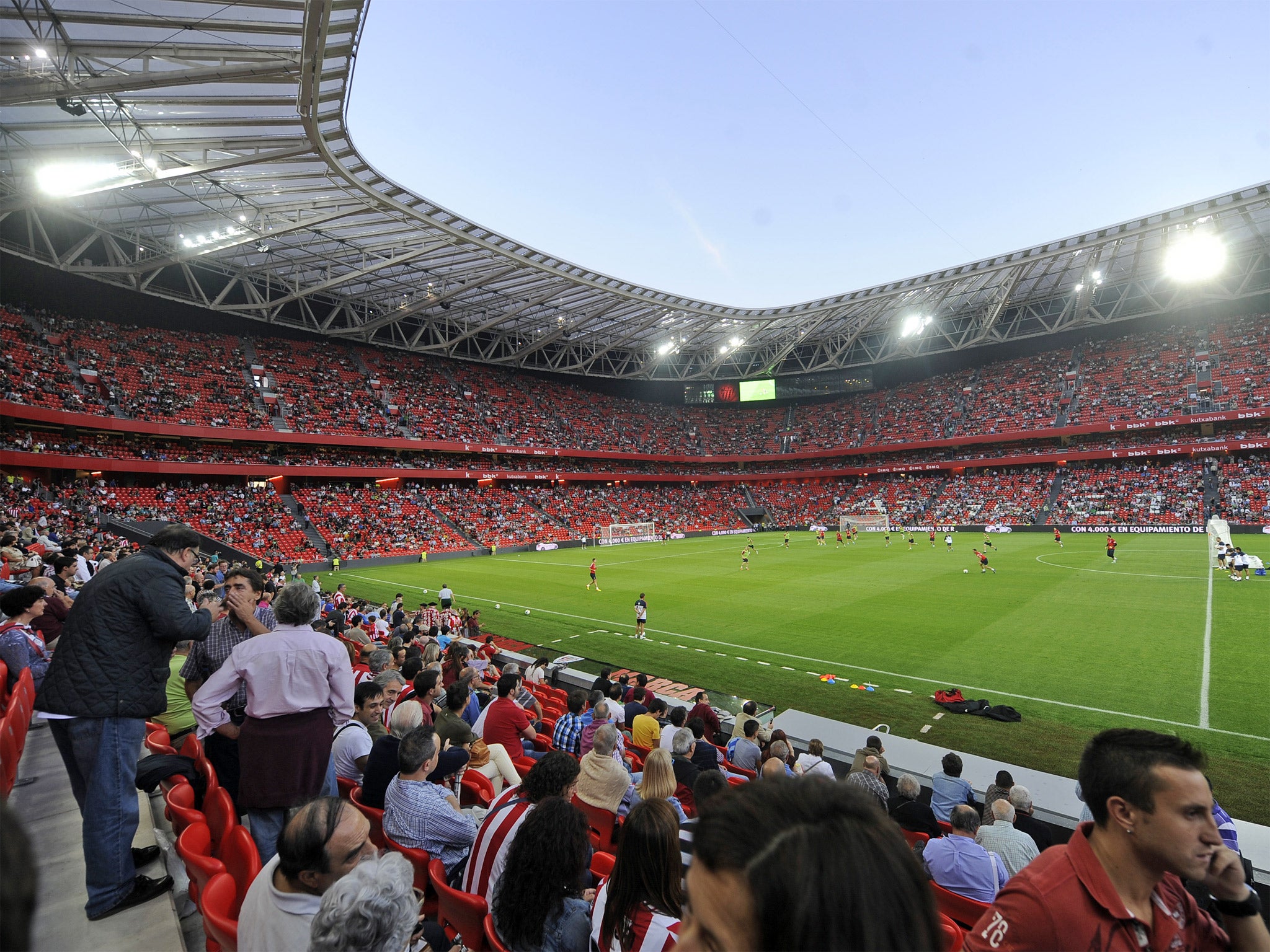European Commission confusion over Athletic Bilbao's stadium deal under investigation
Fourth state-aid case launched around the funding for new San Mames Stadium

The European Commission appeared to deny that there was an illegal state-aid investigation into the funding of Athletic Bilbao's new San Mames Stadium, despite evidence seen by The Independent that the Basque club is the subject of an EC inquiry.
In a landmark day for Spanish football, the EC competition commissioner, Joaquin Almunia, a Spanish national, finally announced there were three state-aid cases covering seven Spanish clubs, including Real Madrid and Barcelona, as revealed in The Independent this year.
Real were named by Almunia in two of the investigations, one over a land deal with their city council and another for their status under Spanish law as a not-for-profit organisation.
Three further clubs, Barcelona, Athletic Bilbao and Osasuna, are also included in the latter EC investigation – the allegation they have benefited from a ruling in 1990 that exempted them from a requirement to become public limited companies. There is a separate third case against Valencia, Elche, in Spain's top division, and Hercules, in the second division, over regional government aid.
However, Bilbao have been named in a new fourth case around the San Mames Stadium, opened this year. The Independent has seen the number for the case – SA.37199 – which was opened in August and has been assigned "priority two status" within the EC.
The only difference from the three other investigations is that it is not subject to the same timeframe, with the EC obliged only to make observations after a year rather than uphold a final decision.
The new 53,000-capacity San Mames Stadium was built at a cost of €211m (£178m). It was financed with €111m of direct public investment – €50m from provincial government, €50m from regional government and €11m from Bilbao city council.
In addition there was €50m of investment by the Basque bank BBK, one of the Spanish savings banks central to the collapse of the Spanish economy, necessitating a €41bn bailout by the European Union.
At a press briefing in Brussels, Almunia, a Bilbao fan, was asked whether the Spanish foreign minister, Jose Manuel Garcia-Margallo, was correct that Bilbao's financing of the San Mames Stadium was also under investigation.
Clearly angered by Garcia-Margallo's remarks, Almunia said to the reporter: "All I can say is that the information you received is not correct. Make sure your sources are accurate before you make any kind of statement of that nature."
Earlier in the briefing he said: "We in Bilbao are very proud of it [the new stadium] but if there were some case of state aid then we would look at it. Despite the fact I like football and despite the fact I support Bilbao."
It is unclear why the commissioner, who is due to stay in office until the end of October, was not aware of the San Mames investigation.
This week, Almunia was criticised by the European ombudsman, an independent adjudicator with some power over the European institutions, for giving the appearance of a "conflict of interest" over his allegiance to Bilbao. That was over the case involving the four clubs who were exempted from becoming PLCs.
Nevertheless, today was a significant day in the EC's relationship with Spanish football with the acknowledgement, after four years, that there are concerns about illegal state aid and a high-level investigation. The clubs deny the charges and the case is ultimately likely to be resolved in the European Court of Justice.
Asked what sporting sanctions might be taken against the clubs if they were found guilty, Almunia said: "I'm not [Michel] Platini. I don't know what Uefa should or shouldn't do. State-aid control is about the use of public money. When we consider that public support is not compliant the consequence of our decision is… to recover the money from the beneficiary."
Subscribe to Independent Premium to bookmark this article
Want to bookmark your favourite articles and stories to read or reference later? Start your Independent Premium subscription today.

Join our commenting forum
Join thought-provoking conversations, follow other Independent readers and see their replies